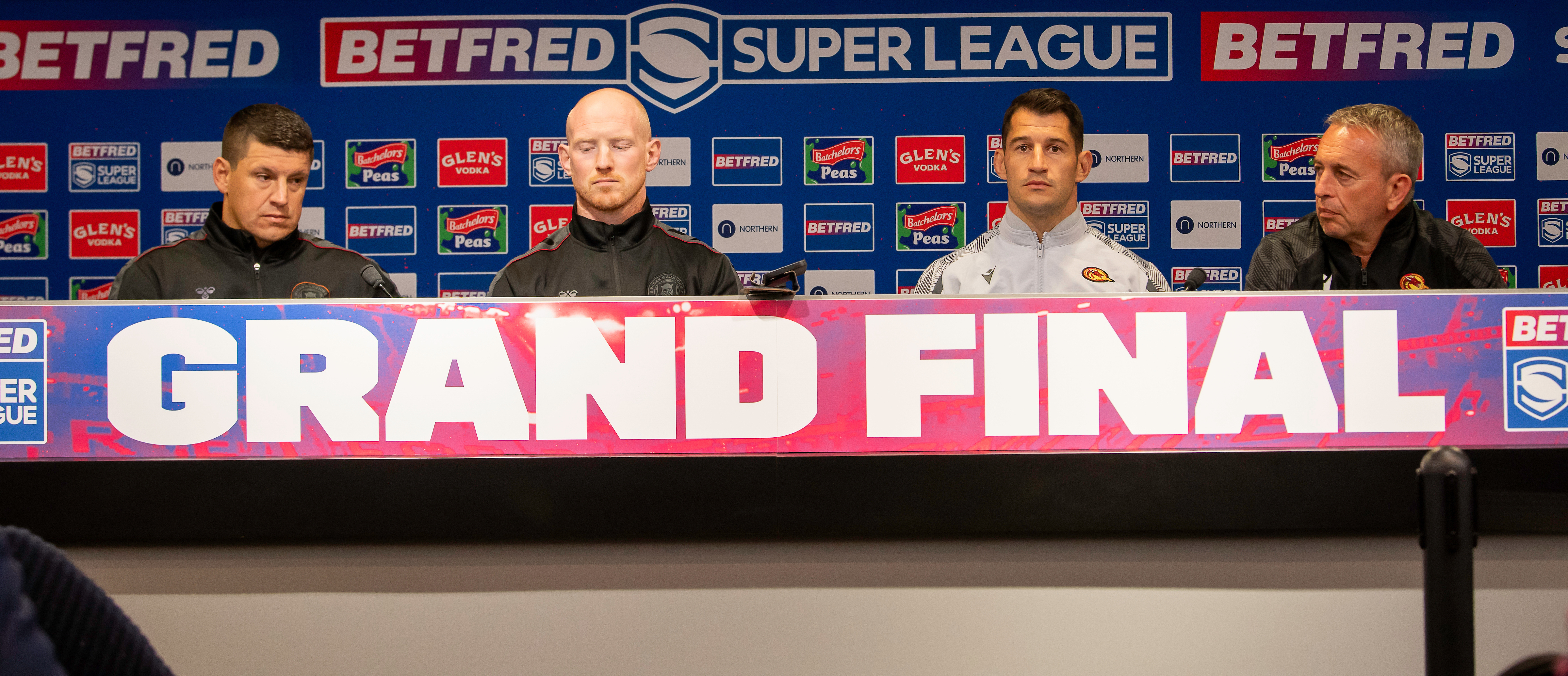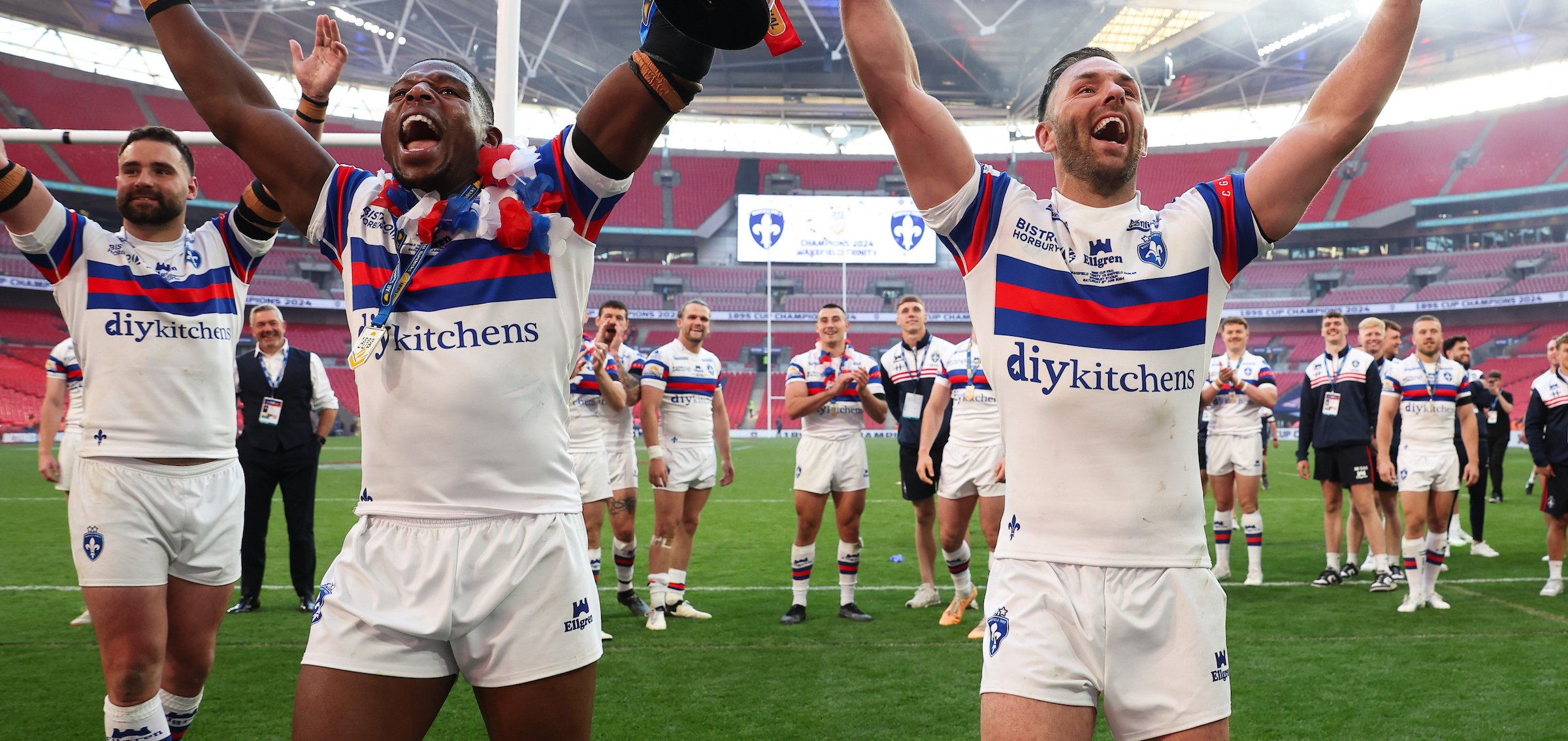Behind every player's transition out of the world of professional rugby league, there stands a team of friends, families, and partners, who play an integral role in shaping this significant life journey.
In the world of professional sports, athletes are the centre of attention. Their dedication, passion, and achievements often take the spotlight, and their transition from a life of competition to post-sport endeavours can be a journey filled with complexities and emotions.
However, it's not just the athletes who experience this transition; their friends, families, and partners share in the process and can play a crucial role in making it a positive and supportive experience. This blog post explores the impact of athletic transition on loved ones and offers guidance on how friends, families, and partners can contribute to a successful transition both in preparation and during the journey.
The athlete's transition: a shared experience
For friends, families, and partners, an athlete's transition out of professional sports can be a period of adjustment and adaptation. It's important to recognise that this transition not only affects the athlete but also has a significant impact on those who have been part of their support system throughout their sports career.
Preparation: the foundation for success
The first step in supporting your athlete's transition is to be proactive in preparation. Here's how you can help:
Open communication: Encourage open and honest discussions about the transition well before it happens. Understand your athlete's goals, concerns, and fears.
Explore opportunities: Research and explore potential opportunities beyond sports. This can involve education, career options, or new passions your athlete wants to pursue.
Network and connect: Help your athlete connect with mentors, counsellors, or organizations that specialise in athlete transition. They can provide valuable guidance.
Financial planning: Assist with financial planning and budgeting to ensure a smooth financial transition.
During the transition: Be a pillar of support.
The actual transition can be a period of highs and lows. Here's how you can be a supportive presence:
Emotional support: Be empathetic and patient. Understand that your athlete might experience a range of emotions, from excitement to anxiety.
Stay informed: Keep yourself informed about the challenges athletes may face during transition, such as identity loss and adjusting to a new routine.
Encourage self-care: Encourage your athlete to prioritize self-care, including physical and mental health. Offer to engage in activities that promote well-being.
Be a sounding board: Listen without judgment. Your athlete may need someone to talk to and share their thoughts and feelings.
Celebrate milestones: Celebrate small wins and milestones in the transition process. Positive reinforcement can boost your athlete's confidence.
Supporting identity beyond sports
One of the most significant challenges athletes face during transition is a shift in their identity. The athlete identity, deeply ingrained through years of training and competition, can take time to evolve into a new identity. As a friend, family member, or partner, you can contribute to this transformation:
Encourage self-exploration: Support your athlete as they explore new interests and passions. Encourage them to try different activities to discover what resonates with them.
Reinforce transferable skills: Recognise and reinforce the skills they've acquired in sports, such as discipline, resilience, and teamwork, as valuable assets in their new pursuits.
Focus on growth: Emphasise personal growth as the key to a fulfilling post-sport life. Growth involves embracing change and continually learning.
Promote goal setting: Help your athlete set new goals and objectives outside of sports. Setting and achieving goals can provide a sense of purpose.
The power of support
The transition out of professional sports is a journey that requires adaptability, resilience, and a strong support system. Friends, families, and partners are vital components of that system, offering encouragement and care during both the preparation phase and the transition itself.
Remember that while the athlete may be at the centre of the transition, friends, families, and partners are the unyielding pillars of support that can make all the difference. Your role is not only to witness the transition but to actively participate in making it a positive and fulfilling experience for your athlete.
In conclusion: a team effort
Athletic transition is a team effort. Athletes, along with their friends, families, and partners, can collectively shape a successful and satisfying post-sport journey. By offering unwavering support, open communication, and a commitment to helping athletes redefine their identities and explore new opportunities, you play an essential role in making the transition a shared triumph. Together, you can embrace the future with optimism and determination, making the transition a profound and positive experience for all involved.
Resources
RL Players Portal: Transition...
Transition Support for Partners & Families...
Contact
RL Cares Transition Manager: Francis Stephenson - 07769 714992 | francis.stephenson@rlcares.org.uk
Quote
"Family is not an important thing. It’s everything”
- Michael J Fox
|
Related Articles

%20(1).jpg)
Player to coach transition
Francis Stephenson | January 22, 2024
The transition from player to coach within the same sport and team is a ...
Read More
%20(1).jpg)
Unlocking player well-being and success: A recap of our recent webinar
Francis Stephenson | September 21, 2024
Last week, Rugby League Cares hosted an insightful webinar dedicated to ...
Read More
%20(1).jpg)